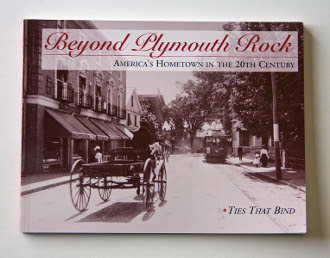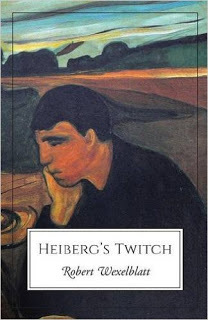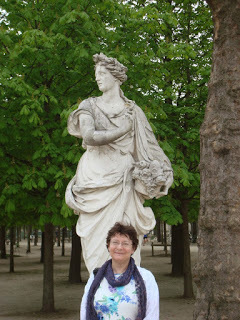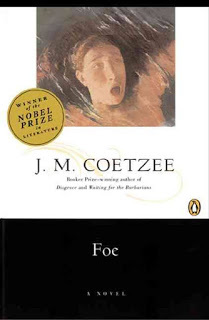Robert Knox's Blog, page 44
February 19, 2016
The Garden of Memory: 'The Boat'
 My story "The Boat," published this week on the Every Writer's Resource website's "Short Stories" page is a very short story about a very long subject. Memory.
My story "The Boat," published this week on the Every Writer's Resource website's "Short Stories" page is a very short story about a very long subject. Memory.( Here's the link: www.everywritersresource.com/shortsto...)
In a relatively few words (the rules for this publication call for stories under 500 words) I tried represent some impression of my mother's last years and our visits with her. In those years after my father's death, she lived first in a senior independent living center, a self-contained semi-paradise of a place in Suffolk County, N.Y., and then, when her health seriously declined, in a nursing home.
 Whenever Anne and I visited we tried to take our of her residential facility, give her a change of scene, some stimulation, maybe something new to think about. Her facility was located on the north shore of Long Island, not far from the coast. We'd take her 'out for a drive,' our little excursions tending naturally to the shore. In earlier days we walked in parks, visited beaches, fed the ducks on a Stony Brook pond neatly surrounded with a carefully constructed boardwalk, ideal for slow walkers and wheelchairs. When she could no longer walk much, we wheeled her in a chair.
Whenever Anne and I visited we tried to take our of her residential facility, give her a change of scene, some stimulation, maybe something new to think about. Her facility was located on the north shore of Long Island, not far from the coast. We'd take her 'out for a drive,' our little excursions tending naturally to the shore. In earlier days we walked in parks, visited beaches, fed the ducks on a Stony Brook pond neatly surrounded with a carefully constructed boardwalk, ideal for slow walkers and wheelchairs. When she could no longer walk much, we wheeled her in a chair. When conditions were not right for a wheelchair, we stayed in the car.
"Let's go for a drive," we said, those last few years. We found little parks or town beaches with parking areas. We parked close to the water, sat in the car, and looked for ducks or birds. Boats or clouds. Flowers or people.
We remembered things. We talked about the past. Since in those years not much 'new' was happening in Mom's life, and not too much about our life was likely to make a lasting impression, we turned to memory.
"What about your memories, Mom?" we asked, one way or another. We tried to remember stories she had told us. When you look at water a lot, a likely subject is boats. Hence my story. In it, the narrator (basically me) asks Mom about a recollection of a 'boat' owned by one of her relatives and kept on different Long Island shoreline. I asked her which uncle had owned it. Had they not taken her out for a sail, or a cruise, on the bay one summer day? Her response was vague. When, after it appeared on line, my sister read the story , she told me whose boat it was -- which uncle, paired with which aunt, kept the thing on Flushing Bay. I'm not remembering the details of these fleeting bits of family lore as well as I used to. It's one of the 'meanings' of a story, even your own, that can sneak up on you. The 'boat' in the story exists not only in Mom's memory, but in mine. And the story is fading. We're all in the same boat.
Published on February 19, 2016 21:35
February 16, 2016
The Garden of the Past: Vanzetti Plants His Hopes in Plymouth

 I wrote these words a decade ago about the street in North Plymouth, Mass., where Bartolomeo Vanzetti lived (published in "Beyond Plymouth Rock:Ties that Bind," an anthology of essays and memoirs about 20th Century history in Plymouth):
I wrote these words a decade ago about the street in North Plymouth, Mass., where Bartolomeo Vanzetti lived (published in "Beyond Plymouth Rock:Ties that Bind," an anthology of essays and memoirs about 20th Century history in Plymouth): "It's paved today, but Suosso's Lane is still a narrow public way off Court Street in North Plymouth, where Valente's Florist sits on the corner. Across Court Street are neighborhood fixtures like Charlie's Hardware Store. St. Mary's Church is just two short blocks north. Suosso's Lane is a short street, cut off almost immediately by High Cliff, the bluff that Bartolomeo Vanzetti and his North Plymouth neighbors climbed in order to look down on the seashore..." Published by Plymouth Public Library Corporation in 2002, edited by John Chaffee and Plymouth library staff members such as the late Lee Regan, reference librarian Bev Ness, and current library director Jen Harris, the 20th century history anthology was a great project for a town with a deep and (one of the few occasions when this adjective is appropriate) unique history. Given the glare of attention paid to the Pilgrims, the first real English-language community in what became the United States (pay no attention to those disreputable gold-diggers in Jamestown, Va.; I never have), it's easy for the town's later generations to get lost in the shadows. With memoirs by then-contemporary (now deceased) residents such as Alba Thompson, Peter Gomes, and Karin Goldstein and essays by many other local voices, the "Beyond Plymouth Rock" anthology remains a gold mine of local perspectives on change and growth in a growing community through a century of industrial breakthroughs, advances, losses, foreign wars, other challenges, and sustained vitality. (The books is available at http://www.support.plymouthpubliclibr...) Plymouth's 20th century, like America's, was fired by the expansion of new immigrant communities. North Plymouth, where Vanzetti found a home in 1913 after five years of disappointment in the promise of the 'new world' spent in New York City and a few smaller cities, was the center of the Italian community and other immigrant groups. Vanzetti, to continue the narrative, found a home on Suosso's Lane with the family of Vincenzo and Alphonsina Brini and their two children in a simple two-story house on Suosso's Lane: "There's an old garage behind it on one side of the lot and a garden area on the other side -- maybe the same garden where the Brinis grew vegetables and Vanzetti, their boarder, pulled weeds. At the street's dead end, railed concrete steps lead upward to a townhouse-style senior housing complex. The view from the bluff is still magnificent, though screened by trees. Parked cars in a black-topped lot take up space across the street from the Brinis' house. The unpaved lane would have seen few cars when Vanzetti came there to live in 1913." Across the street sat the the old wood frame building that served as the Amerigo Vespucci Hall, a social club and gathering place in the old days for "Plymouth's Italian colony." The essay I wrote for the anthology (Titled "Trial of the Century: Local Amnesia") continues with an incident I found in a book of oral histories. "Beltrando Brini, then age 13, chased a ball into a neighbor's vegetable garden on the last day he spoke to his friend as a free man. Vanzetti told him -- very gently, Brini recalled -- not to trample people's gardens or speak rudely to adults." Just one more point, the premise for distaff piece of that title: local amnesia. Vanzetti's arrest, conviction, and ultimately execution for a crime few people believe (or have ever believed) he committed remains a part of history the town of Plymouth has largely expurgated from its past. To quote again from the anthology: "Plymouth has always been ambivalent about Vanzetti, a defendant and arguably the central figure in one of the most famous criminal trials of the 20th century. By the end of the century even long-time Plymouth residents had largely forgotten that he lived [in Plymouth]... when he was arrested on a Brockton street car in 1920."
My recently published novel, "Suosso's Lane," picks up from the factual account presented above. The novel departs from the historical record in inventing fictional characters who people Vanzetti's 1920s Plymouth, including the Mayflower-descendant suffragist who becomes his English teacher and eventually his lover. The story's 21st century characters include a nosy reporter digging into an old murder, a sharp-minded octogenarian who knows more about the events of Vanzetti's life than she's telling, and an African immigrant struggling with the starvation wages of contemporary service workers The book is available at:
www.web-e-books.com/index.php#load?ty...
Published on February 16, 2016 14:26
February 11, 2016
Vanzetti arrives in NYC in 1908, faces terrible working conditions
In 1908, Bartolomeo Vanzetti traveled from Italy to New York City and quickly learned about working conditions for laborers in America.
He found work in a restaurant he describes this way: "... The pantry was horrible.There was not a single window in it. The vapor of the boiling water where the plates, pans and silver were washed formed great drops of water on the ceiling, took up all the gust and grime there, then fell slowly one by one on my head, as I worked below. During working hours the heat was terrific. The table leavings amassed in barrels near the pantry gave out nauseating exhalations..."
"That was a sad year," Vanzetti writes in his memoir "The Story of a Proletarian Life."... "What toiler does not remember it. The poor slept outdoors and rummaged the garbage barrels to find a cabbage leaf or a rotten potato."
See "Suosso's Lane," my novel on the internationally scandalous Sacco and Vanzetti case... available www.web-e-books.com/index.php#load?ty...
He found work in a restaurant he describes this way: "... The pantry was horrible.There was not a single window in it. The vapor of the boiling water where the plates, pans and silver were washed formed great drops of water on the ceiling, took up all the gust and grime there, then fell slowly one by one on my head, as I worked below. During working hours the heat was terrific. The table leavings amassed in barrels near the pantry gave out nauseating exhalations..."
"That was a sad year," Vanzetti writes in his memoir "The Story of a Proletarian Life."... "What toiler does not remember it. The poor slept outdoors and rummaged the garbage barrels to find a cabbage leaf or a rotten potato."
See "Suosso's Lane," my novel on the internationally scandalous Sacco and Vanzetti case... available www.web-e-books.com/index.php#load?ty...
Published on February 11, 2016 20:27
•
Tags:
historical-fiction, literary-fiction, mystery, wrongful-convictions
The Garden of Storytelling: Heiberg's Twitch
 The title story in Robert Wexelblatt's new collection of stories, "Heiberg's Twitch," builds on a classic story-telling arc. We're given a character with a problem, and a community with a different problem. How will these two dynamics interconnect? Our character could exist anywhere in the world, but his story places him (like most of us) in a very specific locale, in Heiberg's case an isolated harbor town. The particularities of that setting give the narrative its second pole: the locals' problem is that a great beast has chosen to crawl out of the ocean and die on their shore. Can the learned professor, who is understandably more concerned with the destiny that has come to him, tell them what it is? A fair number of the involving and highly readable stories in this collection deal with facing a destiny, living with a problem, coming to terms with a limitation. Their resolutions involve making peace with these problems, or simply learning to live with them and perhaps accepting them, seeing things as they are. Some protagonists in the kinds of stories we are all familiar with triumph decisively over their antagonists -- those stories tend toward fable. A couple of these are here, such as the tale of the likely peasant lad who saves his realm, and its people, from disaster. Altogether, "Heiberg's Twitch" offers an impressive variety of fictive flight paths with recognizable story arcs. Fables, father and son conflicts, artists with a crisis, characters with a personal problem, characters with a societal conflict. These stories also have a quality, almost rare today, of satisfying story structure; beginning middle end. They don't read, to put things another way, like fragments of something else, hybrids, genre-benders, cross-media experiments, openings with no ends in sight, 'meta-fictions,' flash fictions, parodies. They feel like stories; not like essays, memoirs, or experiments with form.
The title story in Robert Wexelblatt's new collection of stories, "Heiberg's Twitch," builds on a classic story-telling arc. We're given a character with a problem, and a community with a different problem. How will these two dynamics interconnect? Our character could exist anywhere in the world, but his story places him (like most of us) in a very specific locale, in Heiberg's case an isolated harbor town. The particularities of that setting give the narrative its second pole: the locals' problem is that a great beast has chosen to crawl out of the ocean and die on their shore. Can the learned professor, who is understandably more concerned with the destiny that has come to him, tell them what it is? A fair number of the involving and highly readable stories in this collection deal with facing a destiny, living with a problem, coming to terms with a limitation. Their resolutions involve making peace with these problems, or simply learning to live with them and perhaps accepting them, seeing things as they are. Some protagonists in the kinds of stories we are all familiar with triumph decisively over their antagonists -- those stories tend toward fable. A couple of these are here, such as the tale of the likely peasant lad who saves his realm, and its people, from disaster. Altogether, "Heiberg's Twitch" offers an impressive variety of fictive flight paths with recognizable story arcs. Fables, father and son conflicts, artists with a crisis, characters with a personal problem, characters with a societal conflict. These stories also have a quality, almost rare today, of satisfying story structure; beginning middle end. They don't read, to put things another way, like fragments of something else, hybrids, genre-benders, cross-media experiments, openings with no ends in sight, 'meta-fictions,' flash fictions, parodies. They feel like stories; not like essays, memoirs, or experiments with form. The worthy youth from a common background, for example, survives intrigue and other dangers in an imperial Chinese court to preserve peace in the empire, saving thousands of lives. In another ("Edith Fevrier") a seasoned veteran in his profession is confronted with a precocious amateur, an 11-year-old autodidact with an advanced vocabulary. An artist wins a big prize, but his real contest is a Freudian rivalry with his father. Harold Bloom might call this an "anxiety of influence" story. A son receives a puzzling gift from an otherwise unforthcoming father: a household god who lives in a cage attached to the wall. Set in post-Cold War Germany, a classic con is practiced in the literary field ("Kafka's Pen"). In an instance of the story based on a reversal of common expectations, a brilliant composer struggles to keep off a commercial success he fears would weaken his creative powers. How can he evade Mammon's attempt to give him a prize? A fable about tribalism and nationalism intriguingly titled "Mesopotamia" transpires in a setting with an Eastern European flavor. Borders may change, but the relationship between the state and the individual is ultimately the same. The story reminds me of Machiavelli's dictum, "But the world consists of nothing but ordinary people." A contrasting types story, "Two Poets" pits polarized temperaments. The success: worldly, charming, self-loving, corruptible. And the hermit: puritanical, solitary, rejecting the world's illusions along with its pleasures.What happens when the two meet? A female bildungsroman gives us an intelligent young woman whom life keeps forcing into limiting roles, including that of "Harmony," a voiceless symbol in a famous Greek play. This story, "Eirene," strikes me as more expansive and novelistic than the foregoing pieces, with the kind of background build-up that could sustain a longer story. The more expansive vein spills over into the collection's final pieces, which both satisfy in their current form but (to me, at least) suggest paths for further development. A story titled "Ten-Minute Novel" (but will deliver more than a ten-minutes read) explores the kind of closely plotted, multiple point of view fiction we see in sequential TV or a movie screenplay, concluding with an ensemble action sequence. Even more provocative is the story of the dalliance of the photographer and the emerging writer, who use each other in a creative alliance. The big payoff here is Wexelblatt's skillful exploitation of an archetypal urban experience. Who (we ask ourselves) is that person sitting across the aisle on the subway? What is his or her story? Plenty of grist here for the emerging writer -- or, I suspect, any writer. The story ("Urbs Fabula Sine Argumentum Est") is a tour de force in character-sketching. Most daring of all, perhaps, is the concluding piece, "The Withdrawal of Wawanu," a tale set in the minds, societies, and rituals of people who we are not like us. In fact to them, the story tells us, we are not people at all; we are "demons." Can't risk spoilers by going any further here. "Heiberg's Twitch" is the kind of collection that tells you the short story is alive and well. Can we (for instance) imagine a precocious kid who is not a brat -- less concerned with showing how smart he is than doing a good turn for his mother? This author can. A piece of my own heart remains stuck on the story of a failing professor and a symbolic twitch -- the kind of problem that only a gesture of kindness can relieve.
(2016, Pelekinesis; available at http://www.pelekinesis.com/)
Published on February 11, 2016 10:46
February 6, 2016
The Garden of Seasonal Verse: "These Fragile Lilacs"

A happy morning in the Massachusetts snow. Up today I have three poems on a new (to me) poetry journal elegantly titled "These Fragile Lilacs." It's the second issue for these "lilacs," including many attractive blossoms (from what I've read so far), unlikely to fade.
Included is my poem "Emergences" written early last spring. It begins:
"Backyard traffic picking up
Big brown white-footed cat sniffing the exposed
branch of the arborvitae
as if snow had a smell
Does it smell like February, that aging catastrophe?
Like the day the hawk played tag with the cardinal?..."
Here is the link for "These Fragile Lilacs": http://www.thesefragilelilacspoetry.com/
This winter has been a lot different from last winter's snow-athon, when I was writing that kind of poem in late March or early April. The heavier the winter, the more extravagantly revolutionary the spring.
However yesterday, the first real 'classic New England storm' of the winter dropped eight inches of very wet snow on the Boston area. So maybe the matter of springtime "Emergences" will start feeling timely again in a month or so. The great thing about winter is that it ends.
 Since it's February, as I'm sure everyone is well aware, a new issue of "Verse-Virtual," the poetry journal that publishes fresh work every month, is up at verse-virtual.com. This one has work by 74 poets; quite a substantial package. Most literary journals publish twice year; some offer quarterly publications.
Since it's February, as I'm sure everyone is well aware, a new issue of "Verse-Virtual," the poetry journal that publishes fresh work every month, is up at verse-virtual.com. This one has work by 74 poets; quite a substantial package. Most literary journals publish twice year; some offer quarterly publications. I have three poems in this issue, all on the theme of leadership. Each in a different voice. One very personal ("My Leader" -- guess who?); one a response to what I found an important and moving film ("Spotlight"); and one a rhymed, metered response to the takeover of federal land, formerly Indian land, in Oregon.
Here's how that last one ("Sacred Land") begins:
They bring their guns to land we stole
From treaty's vow to make them whole
We little knew or cared to know
What crimes still darken white man's soul
(See http://www.verse-virtual.com/robert-c... )
Published on February 06, 2016 10:40
February 4, 2016
The Garden of Fiction: A Killer Voice in 'The Assassination of Margaret Thatcher'
 It's hard to read a page of "The Assassination of Margaret Thatcher," or even just a sentence or two, without realizing you're in the hands of one of the best writers of English around and one of the most original minds we're likely to come across anywhere. Just writing well, with the peculiar verve and intensity writers of literary fiction call "voice" may not all by itself be enough to write a memorable book, but it is a necessity.
It's hard to read a page of "The Assassination of Margaret Thatcher," or even just a sentence or two, without realizing you're in the hands of one of the best writers of English around and one of the most original minds we're likely to come across anywhere. Just writing well, with the peculiar verve and intensity writers of literary fiction call "voice" may not all by itself be enough to write a memorable book, but it is a necessity. Mantel has it in spades without ever trying to be "showy," or different, or strange, or just magnificently perceptive. All these qualities, and all the others you want to be there, appear in her writing, but just appear to show up naturally. In the opening story, realistic fiction about social conditions in grand tradition of English fiction, Mantel gives us an encounter between Indian servants in the UK rendered in spot-on UK-Indian English. We might wish the wealthy dysfunctional English family our female servant has recently escaped from were less predictably selfish, self-absorbed and lacking in humanity; or that the servant doesn't become victim to both their oppression and their abuse. But there you have it: the way things are. And here matters are narrated with the minute particulars and a nasty, revealing twist or two to set the tale apart from others of its kind.
In Saudi Arabia things are no better, but the victimhood is simply shared by all the female members of a rich, privileged class, both native and international, who are sentenced to doing nothing. Her treatment of childhood in the story called "Comma" is strange and compelling. The adults in the tale are no more important than an arrangement of stuffed chairs, but childhood at a certain point can feel like that, can't it? When you really dig into things, the way all the "voices" in all these tales can't help doing, nothing really is 'ordinary' or 'normal,' is it?
Certainly not the day spent indoors by what appears to be a respectable, comfortable English woman of a certain age, whose bedroom window just happens to offer the perfect angle for a rifle shot at the English P.M., emerging from a hospital across the way. Mantel is the author of "Wolf Hall," probably the most extraordinary piece of fiction produced this century. Yet, as these stories show, you don't have to serve the gigantic ego of an absolute monarch, or desire to spill the blood of a noxious contemporary pol, to be a subject of interest.
All you need is a pulse, a heart, something to think with, and the desire to survive even accidental encounters with your fellow creatures.
Published on February 04, 2016 21:41
Stories From a Killer Voice: The Assassination of Margaret Thatcher
It's hard to read a page of this book, or even just a sentence or two, without realizing you're in the hands of one of the best writers of English around and one of the most original minds we're likely to come across anywhere. Just writing well, with the peculiar verve and intensity writers of literary fiction call "voice" may not all by itself be enough to write a memorable book, but it is a necessity. Mantel has it in spades without ever trying to be "showy," or different, or strange, or just magnificently perceptive. All these qualities, and all the others you want to be there, appear in her writing, but just appear to show up naturally. In the opening story, realistic fiction about social conditions in grand tradition of English fiction, Mantel gives us an encounter between Indian servants in the UK rendered in spot-on UK-Indian English. We might wish the wealthy dysfunctional English family our female servant has recently escaped from were less predictably selfish, self-absorbed and lacking in humanity; or that the servant doesn't become victim to both their oppression and their abuse. But there you have it: the way things are. And here matters are narrated with the minute particulars and a nasty, revealing twist or two to set the tale apart from others of its kind. In Saudi Arabia things are no better, but the victimhood is simply shared by all the female members of a rich, privileged class, both native and international, who are sentenced to doing nothing. Her treatment of childhood in the story called "Comma" is strange and compelling. The adults in the tale are no more important than an arrangement of stuffed chairs, but childhood at a certain point can feel like that, can't it? When you really dig into things, the way all the "voices" in all these tales can't help doing, nothing really is 'ordinary' or 'normal,' is it? Certainly not the day spent indoors by what appears to be a respectable, comfortable English woman of a certain age, whose bedroom window just happens to offer the perfect angle for a rifle shot at the English P.M., emerging from a hospital across the way. Mantel is the author of "Wolf Hall," probably the most extraordinary piece of fiction produced this century. Yet, as these stories show, you don't have to serve the gigantic ego of an absolute monarch, or desire to spill the blood of a noxious contemporary pol, to be a subject of interest. All you need is a pulse, a heart, something to think with, and the desire to survive even accidental encounters with your fellow creatures.
Published on February 04, 2016 21:34
February 3, 2016
The Garden of Verse: Every Month New Blossoms


Everything is completely different and yet somehow the same in Verse-Virtual. Like the weather: Every month a new shower of words. This year's mild winter leaves plenty of headroom for strong poems.
Joan Colby provides a handful with a week of "good ideas." In a poem titled "ON THE THIRD DAY OF GOOD IDEAS" we learn about trees:
"Consider the trees. How they gift/
The world with the oxygen of being."
Speaking as someone who considers trees a very good idea, I love the way this poem marshals its evidence without waste or sentimentality: an economy of apt phrases. What can be more important than "the oxygen of being"?
Another good idea, "Delight," hits the nail on the head: "Delight is spontaneous." The poem fills us with happy recognitions: "On the morning of delight" -- yes, we think, delight comes in the morning and demands (as the poem tells us) a tango where "a pause/ Can fill the heart with sequins." Books are also a good idea, even the last of these:
"The book of farewells signedBy all the people come to witness."
Barbara Crooker's tightly crafted poem "Surface" is an object lesson in turning an anecdote into poetry. All the imagery hangs together, so a poem on the meaning of surfaces, and our need to clothe them, becomes itself a wardrobe, an outfit:
"I can’t remember her name, just how straight her hair was,/
how it hung down her back like a bolt of cloth. /
In the untidy closet of my heart, I think about what we put on..."
A short month has neither world nor time to wander off before getting to the point. Firestone Feinberg's three wise poems amount to a kind of critical aesthetic:
"Experience itself cannot be told, but/
it can be hinted at in some incarnations of art,"
he writes in "A Poem Perhaps." The lines illustrate their meaning: "This is one./ Consider it./ Be fair."
Robert Wexelblatt's "Diva" uses another strategy of concision to hit the 'nail' on the head. Displeased by a newspaper review of her latest concert that singled out her performing while praising the entire troupe, the diva tears the offending page apart:
She rends the newsprint with a long, red nail:
“My triumph’s hollow—unless others fail.”
With its zinger of a final couplet the poem resembles a satire by Alexander Pope, both apropos and inevitably a little comic. You can also read Diva-country as the opposite of the community carved out by Verse-Virtual. Triumphs everywhere, and a cultivated regard for the beauty found in the achievements of others.
Sonia Greenfield offers a simply excellent gathering of poems under the heading of "Science Poems." The poems are filled with a brainy and beautiful metaphysics such as the notion weighed in "The Science of Poetry the Poetry of Science":
Quantum theory posits parallel worlds
we sometimes press against
where we make different choices
and interact with our mirror selves,
I admit I'm prejudiced since I've been seduced by this speculation before. Is it a premise for a postmodern novel, or mere sci-fi, or an ethical injunction since our "mirror selves" may pop up anywhere, but in a guise we don't recognize? Greenfield's poem carries its thesis through a series of alert, wittily expressed transformation. We end up paying quick visits both to the now-proverbial two roads diverging in a wood and to "miles to go before we sleep." This is a poem that gives us both the road less traveled and, as she says, "the road well worn." A poem that illustrates its thesis by taking both choices. In her poem "Fukushima Daisies," the notion of singularity, of variations in nature and humanity is celebrated. The accompanying photo of the post-nuclear daisy is indescribably apt. I would say the meaning of this flower is indescribable too, but Greeinfield does it:
... those radio-active flowers, clusteredinto misfit bouquets."
These and many other fine poems are available at http://www.verse-virtual.com/ Click on 'current poetry.' Than click on a poet's name.
Published on February 03, 2016 08:09
January 28, 2016
The Garden of Well-Told Tales: "Foe," voiced by J.M. Coetzee
 A recent discussion on Goodreads.com, an online network for readers and writers, raised the question: What constitutes "literary fiction"? No one's pretending to give a simple answer, but a participant nominated "James" (the site does not permit full names), raised a number of good points. I wish to address just one of them, his emphasis on 'voice' in literary fiction.
A recent discussion on Goodreads.com, an online network for readers and writers, raised the question: What constitutes "literary fiction"? No one's pretending to give a simple answer, but a participant nominated "James" (the site does not permit full names), raised a number of good points. I wish to address just one of them, his emphasis on 'voice' in literary fiction.Though I can't fully credit him, knowing only a first name, James mentioned voice twice:
"In literary fiction, anything goes, the author can freely experiment with voice and style... [and] Character (or voice) usually comes before plot."
And in another statement he makes a similar argument:
"The words and style tend to make it a pleasure to read (as opposed to, say, an action driven page turner, where the action makes it a pleasure to read)."
I have recently read three short works of fiction that I see as exemplifying the essential virtue of a strong narrative voice.
"Foe" by J. M. Coetzee; "The Meursault Investigation" by Kamel Daoud; and "The Assassination of Margaret Thatcher" by Hilary Mantel. In each of these books stories are told by a narrator who buttonholes our attention from the book's first words and holds it to the last.
Here, for example, is "Foe"'s narrator, the ship-wrecked Susan Barton appealing to the author of "Robinson Cruso" to tell her story: ''The island was Cruso's (yet by what right? by the law of islands? is there such a law?), but I lived there too, I was no bird of passage, no gannet or albatross, to circle the island once and dip a wing and then fly on over the boundless ocean. Return to me the substance I have lost, Mr. Foe: that is my entreaty."
Ah, we think, here is someone worth listening to.
In this excerpt passage from Coetzee's short novel, chosen pretty much by random, the reader may register impressions such as...:
Well, we are indeed in the early the 18th century, in which long sentence of relatively complicated structure are routine. Long-windedness is not the mortal sin to the readers and writers of that period that it is today for the terser style readers expect and most writers of English deliver. Today, a college English composition teacher (I used to be one) would say, 'Whoops, you've got a run-on sentence here, right after 'but i lived there too.' You can't just put a comma there and go straight into another independent clause.'
Looking at this sentence today, I would have to ask 'why did we bother about such stuff?' Susan Barton's so-called run-on sentence presents no barrier to reader comprehension. In fact the comma, rather than the full-stop period, emphasizes the rising momentum of Barton's surging argument.
And no newspaper editor would allow Barton to follow 'bird of passage' with two examples of exactly that sort of bird: 'no gannet or albatross.' Stick to the essential facts, our news writers would be told. But anyone reading Barton's (that is, of course, Coatzee's) prose with an ear for the joy of language finds pleasure in hearing those precisely chosen names. Those are the (phonetically interesting) names of two kinds of birds who do fly lengthy passages over the blue Pacific to island hop and check out the local food sources in the rich off-shore bays. Plus 'albatross' carries a certain cachet for all readers of English literature, though not for the fictional Susan Barton, since Coleridge would not write his albatross-burdened "Rhyme of the Ancient Mariner" for another century.
The point is that Coatzee's language -- his fictional voice -- here and throughout this book embodies the pleasures of the English speech of that time and place: a joy in embellishment, in assertion, in the pleasure of argument for its own sake.
Similar claims may be made for the voice of Dickens and many of his characters a century later, though his speaker are so full of the joy of elaboration, so enamored of the sound of their own voice, that a good deal of Dickens's humor comes from making fun of their pomposity.
And Shakespeare's speakers both embody a degree of elaboration unmatched anywhere (in my experience at least), while other characters offer snidely under-cutting rhetorical thrusts.
Polonius: "Your noble son is mad:
Mad call I it, for to define true madness,
What is't but to be nothing else but mad?"
Getrude interrupts, concisely: "More matter with less art." Literary fiction has room for lots of voices; Hamlet's poetic complaints. His mother's pointed questions. Other sorts of fiction, genres, give us the same voice, again, again, again. We recognize it. Often we choose a book because that's exactly what we wish to hear.
But the pleasure of English speech spoken well is not what we experience often when we turn on the radio, click on the TV, pick up the phone, or log onto a web site. On these media it's rare to encounter truly crafted language.
Satisfying the craving for well crafted speech -- a voice with something to say, and saying it well -- is what an authorial performance such as Coatzee's does. It gives us something our soul knows it needs.
4.) What is more important to you, story, or character? Why?A.) What's important to me is voice. Somebody has to be telling something -- let's say 'story' -- in a compelling way. Somebody has to have something to say, and has to know how to say it. The writer, through whatever artifice -- first-person narrator or third-person omniscient or anywhere in between -- has to speak with authority, invite, seduce, or demand the reader's attention. And hold it by delivering the goods. You probably need both story and deep, complex, credible characters to do that job, but you don't get in the door, at least my door, without a tongue in your head.
Published on January 28, 2016 22:28
January 27, 2016
The Importance of Literary Voice
In our Goodreads discussion on what defines literary fiction I think participant James has a lot of good points here. Especially his emphasis on voice in literary fiction.
James states: "In literary fiction, anything goes, the author can freely experiment with voice and style;
- Character (or voice) usually comes before plot;
- Deeper social meaning tends to emerge;
- The words and style tend to make it a pleasure to read (as opposed to, say, an action driven page turner, where the action makes it a pleasure to read)."
I recently read "Foe" by J. M. Coetzee, "The Meursault Investigation" by Kamel Daoud, and "The Assassination of Margaret Thatcher" by Hilary Mantel.
Each of these is told by a narrator who buttonholes our attention from the book's first words and holds it to the last. Here is Foe's narrator, the ship-wrecked Mary Barton appealing to the author of Robinson Cruso to tell her story: ''The island was Cruso's (yet by what right? by the law of islands? is there such a law?), but I lived there too, I was no bird of passage, no gannet or albatross, to circle the island once and dip a wing and then fly on over the boundless ocean. Return to me the substance I have lost, Mr. Foe: that is my entreaty."
Ah, we think, here is someone worth listening to.
That's not a feeling we necessarily have when we turn on the radio, click on the TV, pick up the phone, or log onto a web site. On these media it's rare to encounter truly crafted language.
That's what the author's literary voice -- a voice with something to say, and saying it well -- succeeds in doing. It gives us something our soul knows it needs.
James states: "In literary fiction, anything goes, the author can freely experiment with voice and style;
- Character (or voice) usually comes before plot;
- Deeper social meaning tends to emerge;
- The words and style tend to make it a pleasure to read (as opposed to, say, an action driven page turner, where the action makes it a pleasure to read)."
I recently read "Foe" by J. M. Coetzee, "The Meursault Investigation" by Kamel Daoud, and "The Assassination of Margaret Thatcher" by Hilary Mantel.
Each of these is told by a narrator who buttonholes our attention from the book's first words and holds it to the last. Here is Foe's narrator, the ship-wrecked Mary Barton appealing to the author of Robinson Cruso to tell her story: ''The island was Cruso's (yet by what right? by the law of islands? is there such a law?), but I lived there too, I was no bird of passage, no gannet or albatross, to circle the island once and dip a wing and then fly on over the boundless ocean. Return to me the substance I have lost, Mr. Foe: that is my entreaty."
Ah, we think, here is someone worth listening to.
That's not a feeling we necessarily have when we turn on the radio, click on the TV, pick up the phone, or log onto a web site. On these media it's rare to encounter truly crafted language.
That's what the author's literary voice -- a voice with something to say, and saying it well -- succeeds in doing. It gives us something our soul knows it needs.
Published on January 27, 2016 21:04



